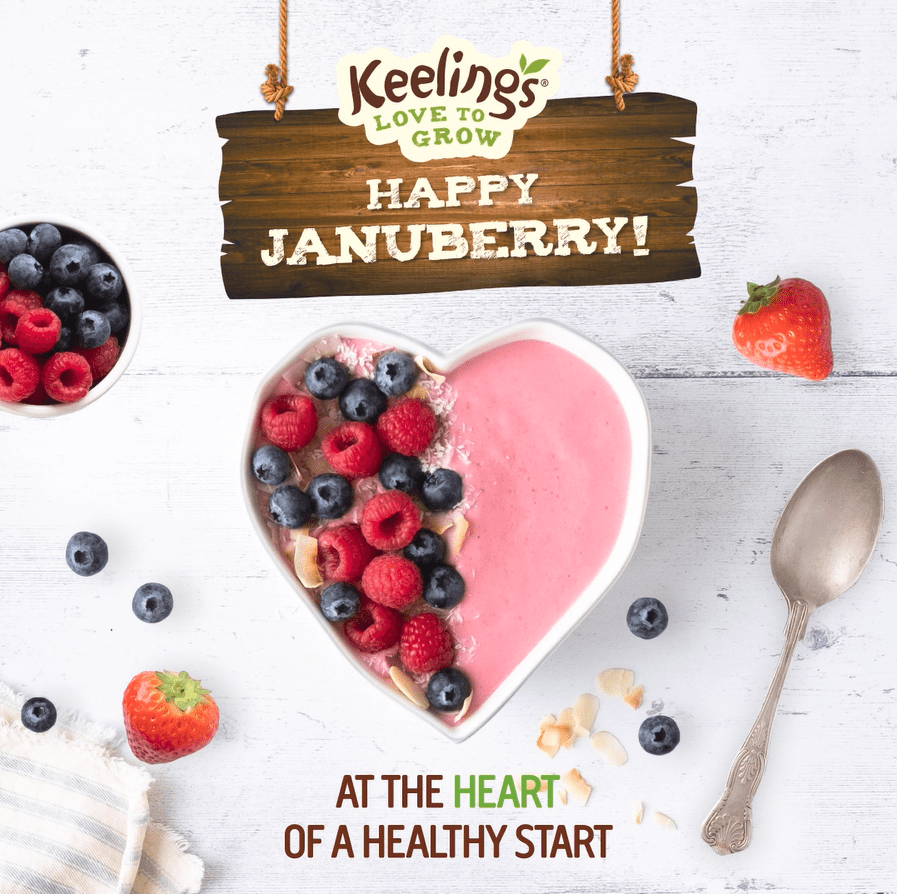Forget the January blues and think about some fruity blues this New Year! Berries are richly coloured, beautifully tasty fruits that are bursting with goodness. Small and versatile berries come in many varieties and forms, making it easy to incorporate them into your diet all year round. Whether they are eaten fresh, frozen, or dried, berries are rich in phytochemicals and fibre while providing essential vitamins and minerals that are rich in antioxidants. Mounting evidence continues to suggest that the regular consumption of berries can offer antioxidant and anticancer protection to both humans and animals.
So, what makes a blueberry blue? Berries contain plant chemicals known as phytochemicals. Phytochemicals are compounds that give fruits and vegetables their characteristic colour and flavours and are believed to protect cells from oxidative damage from metabolism and the environment. A phytochemical called anthocyanin is what gives berries their distinctive colour. A good rule of thumb is the darker the colour of a fruit or vegetable, the higher the concentration of phytochemicals.
Berries, along with other fruits, vegetables, legumes and whole grains, are high in antioxidants. Antioxidants such as beta carotene, lycopene, vitamins A, C & E are substances that help stop or limit the damage caused by free radicals, lower your odds for poor heart health and disease, support your immune system and even help with anti-ageing! Having a diet filled with richly coloured fruits and vegetables can really benefit your overall health.
Berries are also a great source of soluble fibre. High concentrations of fibre are found in the skin of berries. Soluble fibre dissolves in water and forms a thick gel in our digestive tract. This helps to slow the movement of food through the digestive tract, leading to reduced hunger and helping us feel fuller for longer. Soluble fibre also helps to stabilize blood glucose levels in people with diabetes and may help to lower blood cholesterol.
Berries can be added to your breakfast, salad, yoghurt or enjoyed on their own. They’re wonderfully versatile, so let’s make this January a healthy blue Januberry!
Which berry is your choice?
Blueberries are high in antioxidants and are an excellent source of fibre, vitamin A and C, potassium, and folate. One study found that daily blueberry consumption may help reduce blood pressure.
Blackberries – Like blueberries, the rich, dark colour of blackberries indicates the high levels of phytochemicals they contain and the health benefits that come with that. In addition to being a good source of fibre and other vitamins and minerals, they have the highest folate content out of all the berries. Folate is essential for brain function and development and is critical for DNA and RNA production.
Strawberries are packed with vitamin C, folate, fibre, and other antioxidants. One serving of strawberries (about eight strawberries) gives you your daily requirement for vitamin C! Vitamin C is well-known to help support our immune systems, but it is also involved in the growth and repair of tissues in all parts of the body. Vitamin C also helps the body absorb iron from plant sources.
Raspberries are a good source of vitamin C, folic acid, and fibre. They also contain the mineral potassium, which is essential for heart function and proven to lower blood pressure.



